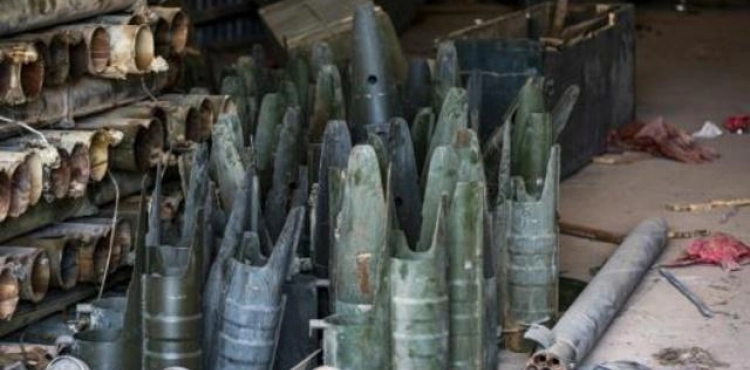France said on Wednesday that the missiles found by forces loyal to the Libyan government of al-Wefaq at a base belonging to the militia´s Khalifa Khalifa belonged to its forces, denying at the same time that it had supplied them, again raising questions about the Paris role. Conflict.
The French military ministry said Wednesday that the US-made Javellin missiles found at the Griyan base, about 100 km southwest of Tripoli, "actually belong to the French army they bought from the United States," confirming information revealed by the New York Times on Tuesday.
But denied that it had handed over to Hafar´s forces or violated the United Nations arms embargo on Libya, saying it was unusable.
The US newspaper reported that troops loyal to the government of the Libyan Accord, internationally recognized when recovered at the end of June, the base of Hafter four anti-tank missiles.
The French ministry said that "these weapons were aimed at providing self-protection of a French unit published for the purpose of survey in the framework of the fight against terrorism."
The French ministry was forced to confirm the deployment of the force, while Paris usually does not address the operations involving its own forces and intelligence personnel.
Paris confirmed that the ammunition was stored "damaged and temporarily unusable in a warehouse for destruction" and "not delivered to local forces." Paris denied the handover to the Libyan National Army, led by Hafer, but did not explain how it ended in that base, in the hands of those forces.
The French Ministry of the Armed Forces confirmed that these weapons were "in the possession of our forces for their safety" and "were not to be sold, delivered, loaned or transferred to anyone in Libya", but did not explain why the ammunition was not destroyed quickly rather than stored in a country in A state of war.
Forces loyal to the UN-recognized Libyan Accordance Government seized control of the Garian base on a range of modern weapons that were presented to the press: three Javelin-type anti-tank missiles and seven Chinese-made laser-guided Norenko GP6 missiles.
Washington opened an investigation into how these US missiles reached a country that is theoretically under a strict arms embargo since 2011.
When seized, the weapons were believed to belong to the emirates, which have strongly denied.
The New York Times reported that the State Department recently concluded that the Jafflin missiles were "originally sold to France," relying in particular on "serial numbers".
Paris bought about 260 Jafflin missiles from the United States in 2010, according to the Defense and Defense Cooperation Agency of the Pentagon.
But the explanations given by France about the presence of these weapons at the site where Hafer´s forces launched their attack on Tripoli in April make analysts puzzled.
"What was the French unit doing on this site, along with the Libyan National Army?" We thought the French were focusing their attention on Sunni extremist groups in other areas, said Jeremy Benny of the Jane Center for Analysis in Paris.
Claudia Gatsini of the International Crisis Group asked: "Did the French military actually support a hole in his attack on Tripoli?" Referring to "ambiguities" in the Paris statement.
After Libyan government forces recovered the Garian base on June 26, a pro-Hafer leader admitted that French and Emirati military advisers were present at the headquarters along with the leaders of the Libyan National Army, a charge denied by the French embassy.
France has admitted to providing Hafer with intelligence information in its war against militants in the east and south of the country, but denied any military support for him in his attack on Tripoli.
In 2016, three French soldiers were killed during an intelligence mission in eastern Libya. Despite the ban, arms shipments from all sides have been reported over the past three months to Libya, threatening a proxy war between regional powers.
Fayez Al-Sarraj receives support from Turkey and Qatar, while Khalifa Hafar enjoys the support of Egypt and the United Arab Emirates, with at least political support from the United States and Russia.
"The setback of the Jafflin missiles will not change anything for Emiratis, Egyptians and French," says Jalal Hershawi, a researcher at the Klingendel Institute in The Hague.
"They will continue to believe that Field Marshal Hafer must win whatever the price," he said. "He is a supporter and has foreign sponsors.
UN experts are investigating possible military involvement of the United Arab Emirates (UAE) in Libya after the launch of the Blue Arrow airliner in April from Wing Long airplanes, a Chinese-made expedition equipped by the UAE army.
At the same time, the National Accord Government published in May pictures of dozens of Turkish armored vehicles on the sidewalk in the port of Tripoli.
During three months of fighting, about 1,000 people, including dozens of migrants, were killed in Libya.












